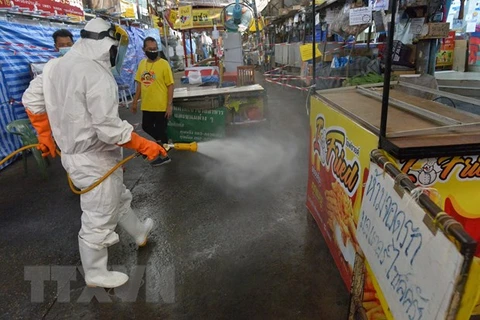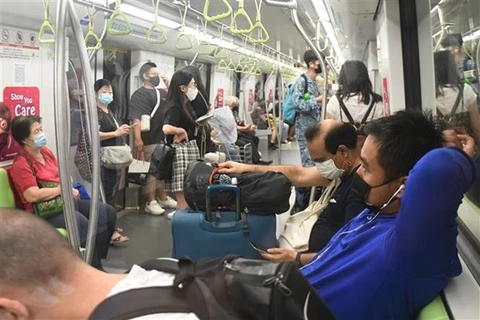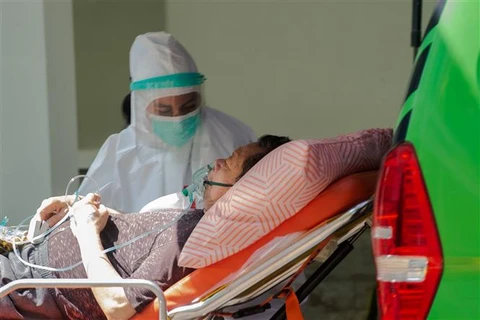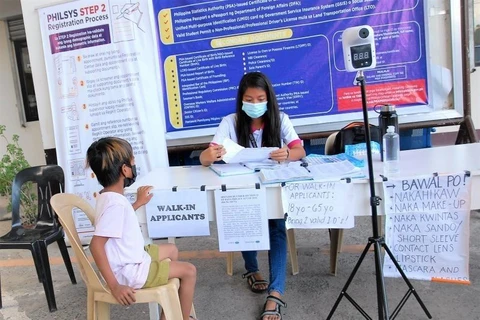 People queue up at Amoy Street Food Centre in Singapore to buy food during lunch hour on July 22. (Photo: www.channelnewsasia.com)
People queue up at Amoy Street Food Centre in Singapore to buy food during lunch hour on July 22. (Photo: www.channelnewsasia.com) Singapore (VNA) – Singapore will consider easing COVID-19 prevention rules for people who have been fully vaccinated if the outbreak is still under control and the hospitalisation rate in the country remains low, said Finance Minister Lawrence Wong on July 26.
Wong said 70 percent of Singapore’s population and 75 percent of elderly people aged 70 years and older will be fully vaccinated by early August.
The city-state expects 80 percent of its population to receive two jabs by September, he said.
Minister Wong said at that time Singapore will allow large gatherings and start reopening the border by establishing travel corridors with countries or regions that have controlled the COVID-19 pandemic.
Those who are fully vaccinated would not need to serve 14-day hotel quarantine when they return from overseas. Instead, they will either be tested for COVID-19, or quarantined at home for 7 days – depending on the risk level of the country where they come from.
Meanwhile, the Indonesian government has decided to relax COVID-19 restrictions by allowing small businesses and shopping malls to re-open despite warnings that loosening sidewalks could trigger another wave of COVID-19.
Traditional markets, street vendors and open-air restaurants would be among the businesses permitted to resume operation on July 26, even in the worst-hit areas.
Shopping malls and mosques in less affected areas would also receive the green light to open their doors to crowds and limited hours. The offices would remain subject to closure orders.
Earlier on July 25, Indonesia President Joko Widodo said the measures imposed in early July would continue until August 2 as the Delta variant spreads across the country but some measures will be eased.
Indonesia has reported more than 3.1 million cases and 83,279 deaths since the pandemic began.
The same day, Commander of Indonesian Army Marshal Hadi Tjahjanto announced that it has deployed 63,000 soldiers to assist in tracing close contacts of COVID-19 patients to rural areas. This move is part of the government’s efforts to prevent the spread of the coronavirus.
Bangkok Metropolitan Administration (BMA) has been deployed rapid antigen tests in its battle against the wave of COVID-19 infections threatening to swamp the capital, The Nation newspaper reported.
Bangkok Governor Aswin Kwanmuang said antigen test kits are being used at six testing stations to facilitate residents and speed up proactive testing.
The test kits provide results within 30 minutes and are over 90 percent accurate, he said.
People who get a negative result after taking an antigen test will be allowed to return home, while those who test positive must take an RT-PCR test to confirm the infection, he said, adding that that the National Health Security Office (NHSO) will offer the home/community quarantine service or hospitalisation to people whose rapid antigen test comes back positive.
Bangkok registered 2,573 new infections on July 26 while the country logged a new daily high of 15,376 Covid-19 cases, with 87 deaths./.


























